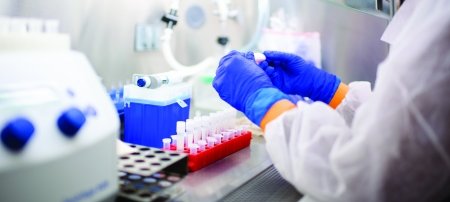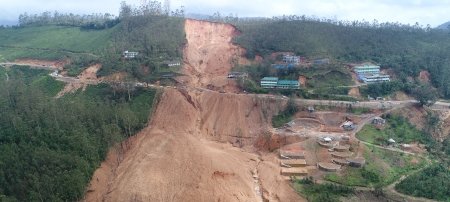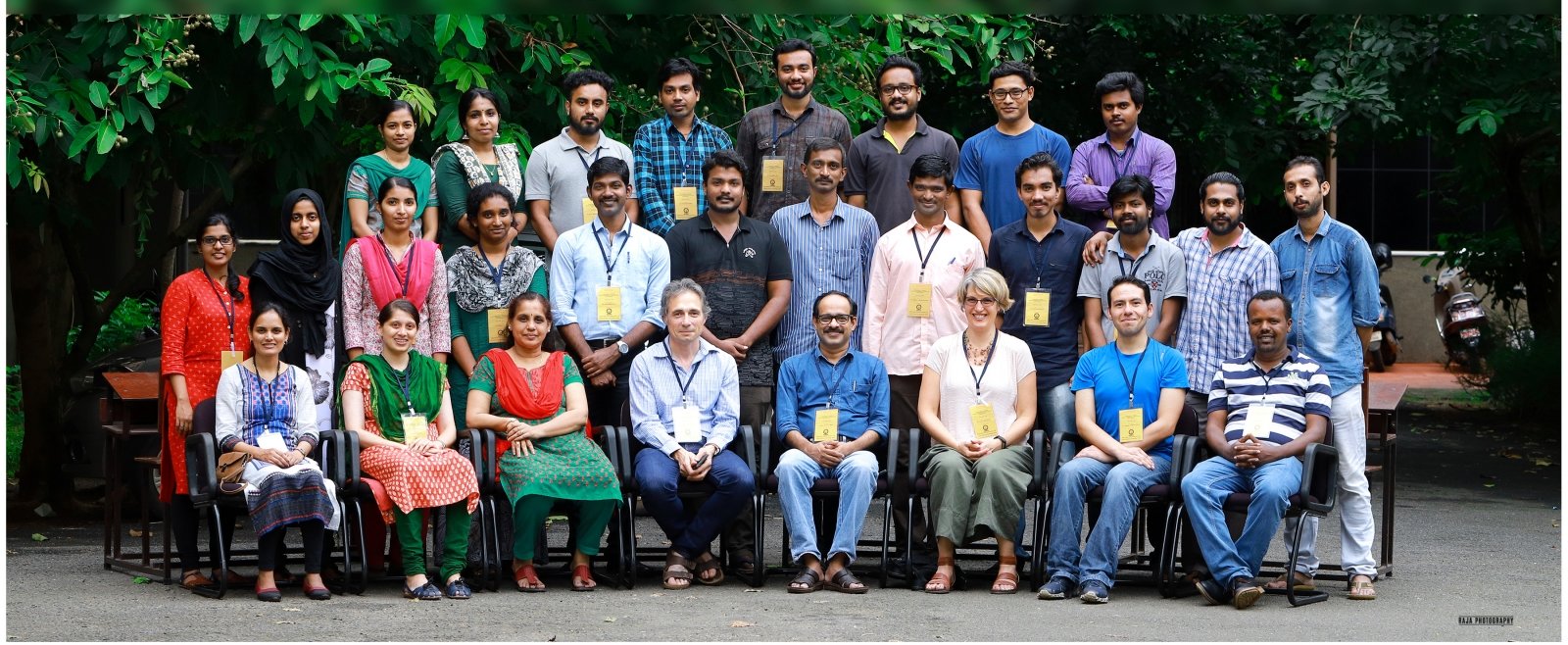Durgapur sits on the eastern side of the West Bengal state, not too far from the border with Bangladesh. Here in this floodplain of the Bengal River, Shankaransh Srivastava is putting his marketing and engineering knowledge to use. Not in the ascending office towers or thriving industry in this half-century-old city, but rather in the importance of sanitation, of practices and hazards and protocol for using the flowing Bengal as a source of life rather than as a danger to it.
Shankaransh Srivastava can’t change an entire nation of a billion citizens all at once. But he can make a difference in one place right now. The biggest challenge he sees for Indian citizens in the eastern state of West Bengal is something we might think as obvious: simple sanitation knowledge can go a long way to building healthy, happy lives.
Srivastava earned an undergraduate degree in mechanical engineering from the National Institute of Technology–Durgapur, coming to Michigan Tech to complete his master's in the same area. “I initially chose mechanical engineering because of my interest in automobiles—which gradually shifted to renewable energy,” he says. “I worked on performance and emissions of biodiesel and I have a couple of publications focusing on biodiesel performance, emissions, and commercialization in India.” At the same time, his experience in the School of Business and Economics helped him to understand how marketing can spread ideas and do the most good. “I was surprised to know that my country ranks first in the world in number of deaths due to poor sanitation and drinking water issues,” he says. “While I was researching it, I found publications where researchers calculated the number of days lost due to illness caused by poor sanitation, as well as the associated economic losses.”

Srivastava’s project, Healthy Living, Happy Living, is part of a larger movement called the Bihari More Education Project (BMEP). It is named for Bihari More, a neighborhood in Durgapur, and is providing a comprehensive educational boost to area children. “My goal is to add sanitation to the basic academic knowledge these kids are obtaining through BMEP,” he explains.
Durgapur is unlike many cities as we conceive of them in the West: it did not arise from a trading hub or geographic conditions. Instead, Durgapur is a planned city, just over a half-century old. “Durgapur is among the ten fastest-growing cities in India,” Srivastava says. It is a mid-sized, neat and clean city with very educated people.”
It is a place of industry, including steel production, but is quickly moving into information technology. The rapid rate of development, however, means that some life habits from a more agrarian economy survive. “Health is a major issue in India,” Srivastava says. “Some people think that they are in simple villages and do not have enough money or amenities to maintain hygiene. I want to change this thinking and spread the awareness that sanitation and hygiene are not money-bound but willingness-bound.”
 According to the World Health Organization (WHO), 2009 was a watershed year: for the
first time, more than half of the world’s population resided in cities and urban areas.
“Urban growth has outpaced the ability of governments to build essential infrastructures,”
the report says. As Srivastava says, it is not a matter of simple funding, but rather
the ability to apply resources where they are needed. This is exactly what the first
phase of his project has been analyzing.
According to the World Health Organization (WHO), 2009 was a watershed year: for the
first time, more than half of the world’s population resided in cities and urban areas.
“Urban growth has outpaced the ability of governments to build essential infrastructures,”
the report says. As Srivastava says, it is not a matter of simple funding, but rather
the ability to apply resources where they are needed. This is exactly what the first
phase of his project has been analyzing.
“We conducted a survey among 40 kids living in the village,” Srivastava explains. “We asked them basic questions like ‘do you wash your hands before and after eating,’ ‘how often do you cut your nails,’ ‘do you keep food covered in your house,’ ‘do you have a proper toilet and bathroom facility in your house,’ questions like that.”
Healthy Living, Happy Living is collecting these answers and determining what steps need to be taken to improve sanitation and habits, setting the content of BMEP’s education efforts.
This isn’t all the project is doing for the people of Durgapur. Srivastava explains: “BMEP was initiated by my friend Harsh Vardhan Singh, focusing on teaching the kids of Bihari More,” he says. “A group of undergrads of NIT–Durgapur teach these kids every evening, and NIT–Durgapur supports this initiative by providing access to classrooms and computers. BMEP has also launched fundraising campaigns where NIT–Durgapur alumni are providing funds to get these kids admitted to good schools. Among these 40 kids, 15 have already cleared the entrance exams of the top schools in the area and their tuition fees are provided through BMEP funds.”

The steps they are taking are helping more than the BMEP participants. “We are also planning to test the drinking water supplied to that village in NIT–Durgapur’s lab,” Srivastava says. “I have prepared a team of five volunteers who will not only help me spread this awareness but are actively involved in surveying and following up with the sanitation measures suggested to these kids.”
For Srivastava, Durgapur is much more than statistics and development: it’s like home. “We had ten hostels with capacity of at least 300 students each inside the college campus. Hostel was the place where you cannot afford to not make friends. In the evening, my room was usually packed with at least ten people doing assignments, partying, sharing political views, and watching cricket matches. Durgapur as a city was so much fun that after every vacation I would have a smile on my face as soon as I reached the railway station. It felt like second home."
“I am a mechanical engineer, but my interest in economics has led me to doing some good for society. It is an amazing feeling to apply these concepts that I learned at Tech in my real life.”

The next steps are already taking shape thanks to local and international help. “In August 2014 we launched a campaign where we show videos created by WHO and some local authorities in India for the families of these kids,” Srivastava says with pride. “These videos are basically on the health issues caused by improper sanitation, how because of hygiene problems India has the highest infant death rate in the world.
Even with all of our advances in technology and education, small steps by motivated, socially-conscious individuals can make a world of change. “Simple acts like washing hands before eating could save millions.”
Michigan Technological University is an R1 public research university founded in 1885 in Houghton, and is home to nearly 7,500 students from more than 60 countries around the world. Consistently ranked among the best universities in the country for return on investment, Michigan's flagship technological university offers more than 185 undergraduate and graduate degree programs in science and technology, engineering, computing, forestry, business, health professions, humanities, mathematics, social sciences, and the arts. The rural campus is situated just miles from Lake Superior in Michigan's Upper Peninsula, offering year-round opportunities for outdoor adventure.




